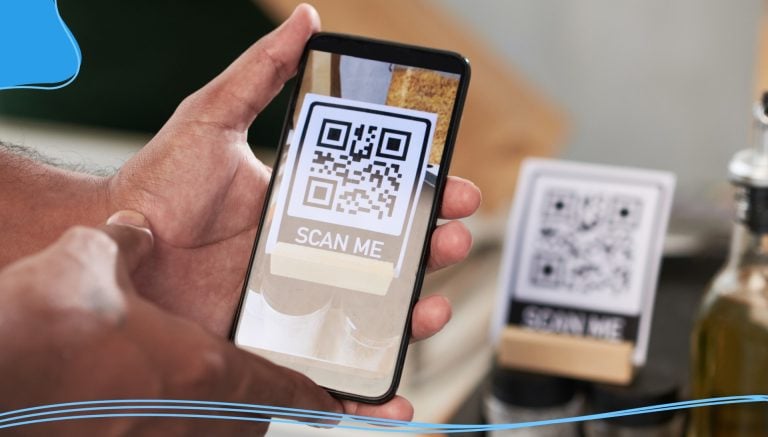[Updated February 2019]
Aside from the decision to start your own small business, choosing a name for your startup may be the most important thing you do. A good name can be worth millions of dollars, while a bad name can be fatal for a new business.
We’ve been involved in the naming of several businesses and products over the past 20 years. Here are a few of the lessons we’ve learned from those experiences.
How to choose the best business name
Make your business name memorable—something with “verb potential”
Think about the purpose of your startup’s name. It needs to be a name your customers will remember. Even better if you can choose a name with what entrepreneur Guy Kawasaki calls verb potential. He says, “In a perfect world, your name enters the mainstream vernacular and becomes a verb. For example, people ‘Xerox’ documents—as opposed to photocopy them. People ‘Google’ words instead of ‘searching for them on the Internet.’ Names that work as verbs are short (no more than two or three syllables) and not tongue twisters.” Great names have the potential to become stand-ins for the products or services they represent.
Make sure your startup name is original
Here’s a question: what do the following companies and products do? Actavis, Actos, Advaxis, Alimta, Amalthea, Anavex, and Atripia. What about Claris, Clarins, Claritin, and Claria? These are all real products or companies, but the names are so similar you’d be forgiven for not knowing which one is software and which one is allergy medication. If you want your company or product to stand out, you can’t start by sounding like everyone else.
In addition, you’ll need to choose a name that isn’t already registered with your state’s corporation authority. Most states have an online tool to check name availability. Be sure to use yours.
Make sure your startup name is easy to pronounce
Perhaps worse than the names in the paragraph above are companies like Derecuny, W3LL, Xoom, L’Occitane or Xyience. How do you pronounce those? If you heard someone say them, could you spell them? While you should make every effort to be original and to stand out (see above), you can go too far. Names that are difficult or impossible to pronounce or spell tend to also difficult to remember. And being memorable is what your name is for in the first place.
Be careful not to choose a name that limits how you grow
There are hundreds of companies with “Southwest” as part of their name. Most are based, as you might guess, in the southwestern United States: Southwest Airlines, Southwest Bank, Southwest Institute of Healing Arts, Southwest Gas, Moe’s Southwest Grill, Southwest Health, Southwest Federal Credit Union, Southwest Care Center, Southwest Cheese Company, Southwest Farm Press, Southwestern Energy, Southwest Pools, Southwest Plumbing Supply and on and on.
Nothing is wrong with any of those names unless the companies want to expand beyond the region they’re based in. Would someone with a clogged sink in New York City call Southwest Plumber Supply? Not likely.
Take another, fictional, example: a small business with a name like Aunt Millie’s Soups could easily expand into a line of canned stews. But they would have a much more difficult time starting a line of fruit smoothies under the same name. And forget about offering fresh flowers. It’s just too big a leap to go from soups to flowers. Choose a name that won’t limit your ability to expand into new, related businesses.
Made up words are risky
Much like the names in the paragraphs above, business names that are made by mashing two words together (ShoDogg, Footfeed, Gwabbit) or made up entirely (Mibblio, Blekko, Unrabble) are definitely trendy. Don’t’ get us wrong, these kinds of business names can work, but you generally want to have a decent budget for marketing if you choose a name like these, as it will likely take time and lots of exposure for the name to catch on with your customers. It’s a risk that can pay off, but as often as not, won’t.
Worse, there is some science that suggests that customers (actually most people) tend to think that unfamiliar sounding names and names that are hard to pronounce are dangerous and risky. They simply don’t trust them. This is more important for product names for food products and medications than for products like software, but it’s something to keep in mind. The name Google Pixel 3 is genius when compared to Samsung Galaxy S8 Active. Which sounds more friendly and trustworthy to you?
Choose a name and a domain name
As you think through the possible names for your company, you’ll want to give some thought to your web presence. Think about choosing a domain name that’s suitable and related to your business or industry. Is milliessoup.com available? You definitely want a .com URL instead of something like .net, .info, or .org because that’s how people think when they are looking for things online. Nobody types in companyname.org. They type .com. Get the .com if you can. If you can’t, try a variation like getsoup.com, soup-it.com, or something similar.
Note: if the .org or .info addresses for your business name is available, you may still want to purchase them and forward them to whatever .com name you choose.
Don’t choose a name that is too generic
So what about a name like ours—LogoMaker? Is something that describes what you do a good name. Probably not, for a couple of reasons. First, it can be limiting. While customers will trust a company named Logomaker to make logos, they may not trust us to make their websites. The second issue with choosing a generic phrase as a business name is the lack of brand protection. Competitors can advertise themselves as logo makers, which causes confusion for customers.
On the other hand, when competitors use terms like logo maker to describe their products, customers often only remember the generic term and will find us first when they search for our competitors online—so there may be some benefit to this approach. On the whole, it’s a good idea to choose a name that’s not too descriptive or generic for your company.
Once you have a great name, and have registered the name with your state and have purchased your URL, it’s time to put your name in a logo.



